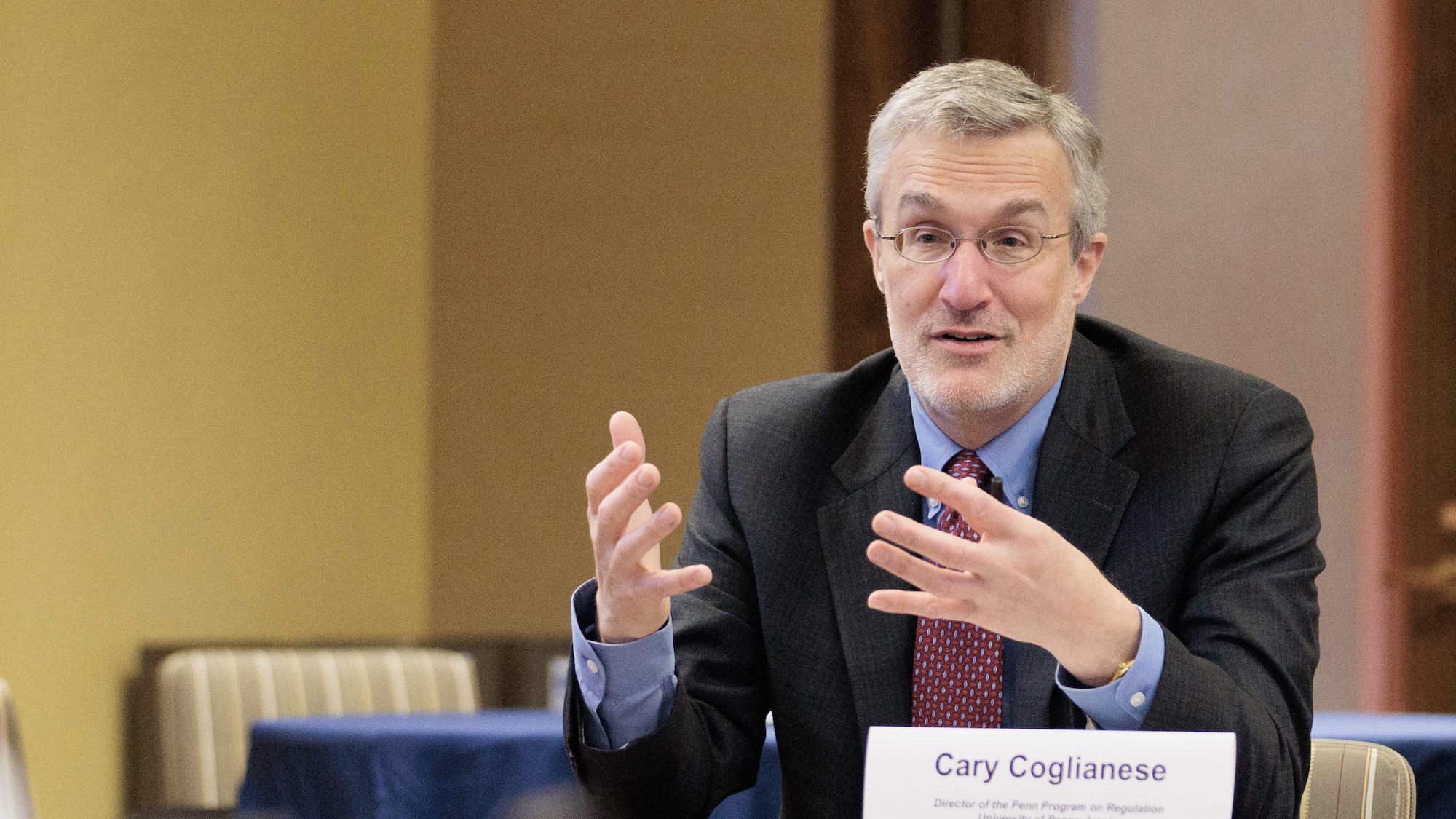The Penn Program on Regulation (PPR) held a leadership dialogue program on September 19 and 20 with the Executive Committee of the U.S. Office of the Comptroller of the Currency (OCC).
The OCC, one of the nation’s major federal banking overseers in the United States, comprises an independent bureau within the U.S. Department of Treasury, regulating and supervising the safety, soundness, and fairness of all national banks and federal savings associations throughout the United States. OCC’s Executive Committee consists of the current Acting Comptroller of the Currency as well as the agency’s other eight top leaders.
The PPR leadership dialogue, which was held on the campus of the University of Pennsylvania Carey Law School, was organized by PPR Director Cary Coglianese and PPR Managing Director Andy Coopersmith. It brought faculty from Penn’s law school and the Wharton School together with some of the nation’s most experienced banking regulators for a series of interactive discussions around cutting-edge regulatory issues confronting the financial sector as well as issues integral to the effective management of regulatory agencies.
Coglianese, who is also the Edward B. Shils Professor of Law, led discussions on defining and measuring regulatory excellence. Building on the findings from his multi-stakeholder and multi-domain research on the qualities of world-class regulators, Coglianese shared a general model of regulatory performance that can be adapted by any regulator, including the OCC, to improve its success.
In addition, drawing on his extensive work on artificial intelligence and regulation, Coglianese facilitated a separate session on the oversight of private sector developments in digital technology—as well as on approaches to the use of artificial intelligence tools by public sector regulatory organizations.
“I learned a tremendous amount from the opportunity to interact with the OCC’s leadership about the real-world challenges confronting the financial sector today,” said Coglianese. “The OCC’s top management team brought to the dialogue a truly impressive depth of experience and insight in analyzing these challenges.”
In another part of the leadership dialogue, financial historian and legal scholar Peter Conti-Brown, the Class of 1965 Associate Professor of Financial Regulation and Associate Professor of Legal Studies & Business Ethics at the Wharton School, offered historical lessons on the U.S. banking system and its regulation, sharing insights on the important relationship between the OCC and other federal banking agencies.
In the face of increasing concerns about financial and economic risks posed by climate change, Witold Henisz,the Vice Dean and Faculty Director of the ESG Initiative and Deloitte & Touche Professor of Management at the Wharton School, shared research on the challenges climate risks pose to banks.
Lisa Fairfax, a Presidential Professor of Law and Co-Director of the Institute for Law & Economics at Penn, shared research findings on the benefits of board diversity, particularly for banks and private sector financial entities. She offered practical solutions about how boards could best improve diversity and harness its benefits in the current legal climate.
In addition to her appointment as a Presidential Professor on the law faculty at Penn, Fairfax is a public governor of the Financial Industry Regulatory Authority (FINRA), a major self-regulatory governing organization in the financial sector.
“The Penn Program on Regulation brings together leading scholars on regulation with the aim of encouraging research that informs real-world regulatory decisions,” noted Coglianese. “Our programs bring our tremendous faculty together with top regulators and provide excellent opportunities for mutual learning in the service of improving regulatory performance.”



